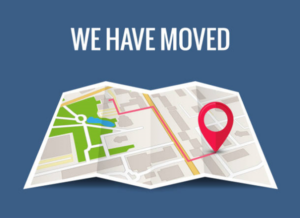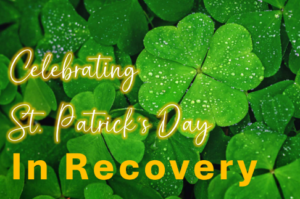Personal, courageous & profound – an entry from Amber F, CPRC, Recovery Coach, Big Rapids
As I sat there in shock, watching the 50-inch flat-screen TV, mirroring the ultrasound of my departed 12-week-old baby, I gathered the words, “There is no heartbeat, is there?” With a sorrowful look, the ultrasound tech replied, “No, I’m sorry, there’s no heartbeat.” She knew she wasn’t allowed to give me that information, but she did anyway. Maybe she was a mother herself, and she couldn’t bear the thought of sending me back to my hospital room with the idea that everything might still be okay, knowing full well that everything was most definitely not okay. I appreciated her words even in that heartbreaking moment because they were the truth, and I could begin to process my emotions. I felt my fiancés hand on my shoulder, followed by his head. The tears began to fall, and, at that moment, we started grieving someone that we had never met but already loved so dearly.
When unexpected events, tragedies, losses, or changes happen in our lives, our minds may turn negativity. We can choose whether to cling to the hurt we have experienced and continue to suffer or look at the experience as a teacher. No one should have to go through terrible things like pregnancy loss, death of a loved one, or illness, but unfortunately, that is sometimes the hand we are dealt in life. Now, I could have thrown the towel in and abandoned my entire 6 years of recovery to avoid the pain I was feeling. I could have found someone to blame or used some sort of substance to just forget it all, but I didn’t. The reason is that I don’t have to live that way anymore, and I know today that feeling pain means I am alive, well, and sober. No amount of pain will develop into a more suitable emotion by indulging in temporary relief. In my years of recovery, I have grown immensely. The crazy thing is that the challenging and painful life experiences have led me to the most growth, allowing me to understand life more fully through each painful tear. These are the things we don’t like to talk about. The hard things, the painful things. They are so extremely difficult, yet they are part of life. This story is just one of the painful experiences this year. However, I am still here, grateful in recovery, feeling my feelings and talking about them. My therapist says when you are in the feeling, you are in the healing.
That said, I wanted to share some tips on coping with the painful things that happen to us in recovery, so here is my bucket of knowledge:
- Seek outside help. It can take a lot of work to ask for help. Some people may think asking for help is admitting defeat or a sign of weakness. Asking for help is the exact opposite of weakness; it is courageous. It doesn’t take too much thought to continue the same cyclical patterns. Still, it takes immense courage to say that the way you are doing things isn’t working well, and you want to learn how to do something different. Instead of repeating the same behavior repeatedly because you think we can get through it alone, seek help from a therapist, sponsor, support group, or someone that can be trusted with your feelings. What can it hurt?
- Gratitude. “With gratitude, optimism is sustainable. If you can find something to be grateful for, you can find something to look forward to, and then you carry on.” -Michael J. Fox. Starting the day with a gratitude list or even consciously thinking about the many things I am grateful for keeps me out of negative head space. Sometimes we forget the many things we can be thankful for, like our lungs giving us breath. We can always find something to be grateful for.
- Let yourself feel whatever you feel- I struggle with letting myself be emotional in any situation because it feels like I’m “too much.” Through my years in recovery and therapy, I have learned that there’s no such thing. Have compassion for yourself, and don’t shame yourself for having emotions; they are human. It can be easy to think we should handle difficulties better during hard times. Still, we handle them how we handle them, and there’s nothing wrong with how we experience emotions. My sponsor always says, “You can be there, just don’t stay there forever.”
- Be aware of your thoughts and utilize positive self-talk- Along with judging our reactions and emotions, we tend to be critical of ourselves, at least I do. So, to help myself, I start by being aware of the number of negative thoughts that run through my mind throughout the day, and then I watch them. I try not to cling to and believe them, and I try not to judge myself for having them. Just let them pass. Some of the little mantras I use are “These negative emotions will not last forever, they will fade” and You are a good person who…” For example, when I am overstimulated and having an off day and I yell at my daughter, I say to myself “you are a good person who yelled at your daughter.” After the incident, I can apologize to my daughter and express why I reacted the way I did. That way, I can do better next time, but I’m not degrading myself for being human.
- Connect with a higher power- It is okay to believe in a higher power that you understand and makes sense for you. There are so many different resources for spiritual connection; if it works for you, then it is working. In my experience, leaning on God has helped me through some very challenging times. As I mentioned before, it is easy to let my thoughts get the best of me, and sometimes the way I think makes a situation even more painful. Connecting with my higher power helps me get out of my head. I start by making conscious contact with God in the morning, which sets the tone for being in the right mindset, like gratitude. Don’t get too bent out of shape; I’m not saying to go to church, but maybe try to believe in something other than yourself.
- Get comfortable with acceptance- First, you don’t have to like something to accept it. For me, acceptance means coming back to the present moment. The realization that something might not be what I expected it to be or how I expected it to go is still what is happening right now. I cannot move on from my past idea of “how things should have gone” unless I accept life on life’s terms. In a nutshell, I acknowledge that I do not have control over the situation; it is outside of my control. It has already happened, and not accepting it is causing me to stay stuck in my pain. That doesn’t mean I can’t take steps to do something better next time if it is in my control.
These are some things that have helped me beyond measure. Hopefully, this reaches someone who needs to hear it. My knowledge comes from others who have passed it down to me, meaning I am freely giving what I have been freely given. I do not use these skills perfectly, nor will you. All that matters is that we try our best. Remember, pain is already painful. We don’t have to hate it more, and if you can get through challenging and painful moments, think of how easy all the other stuff will be!
 Contact
Contact FAQs
FAQs




